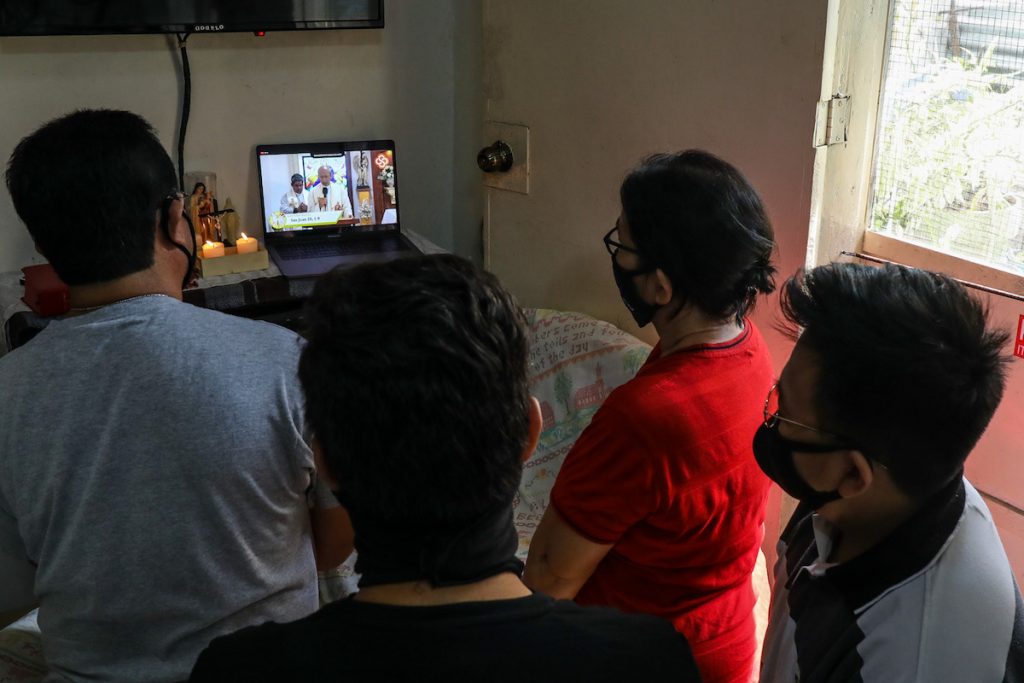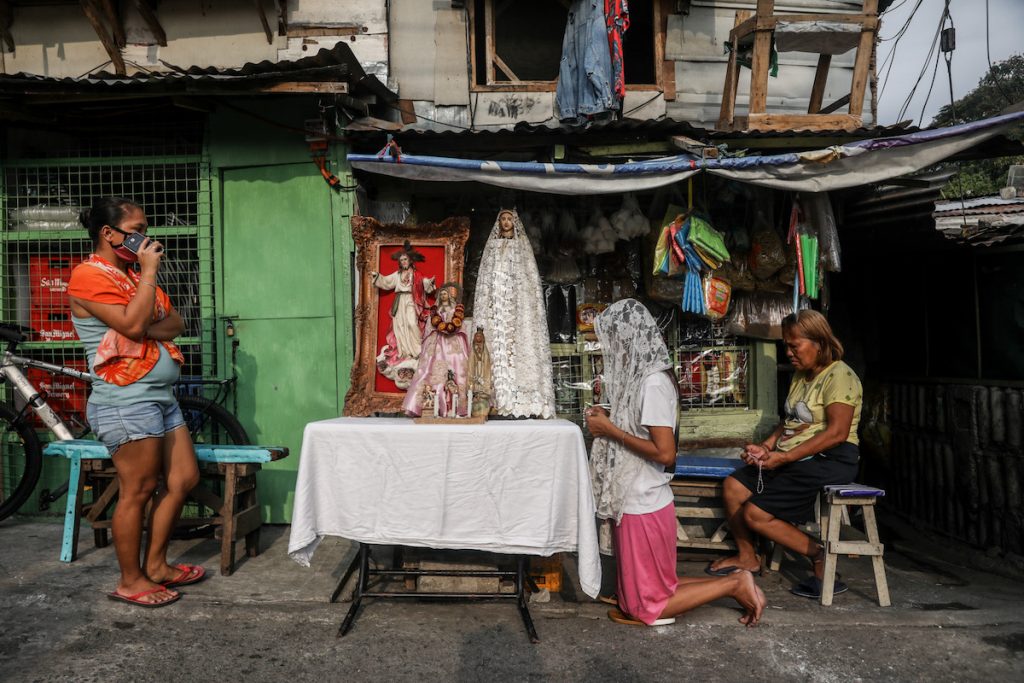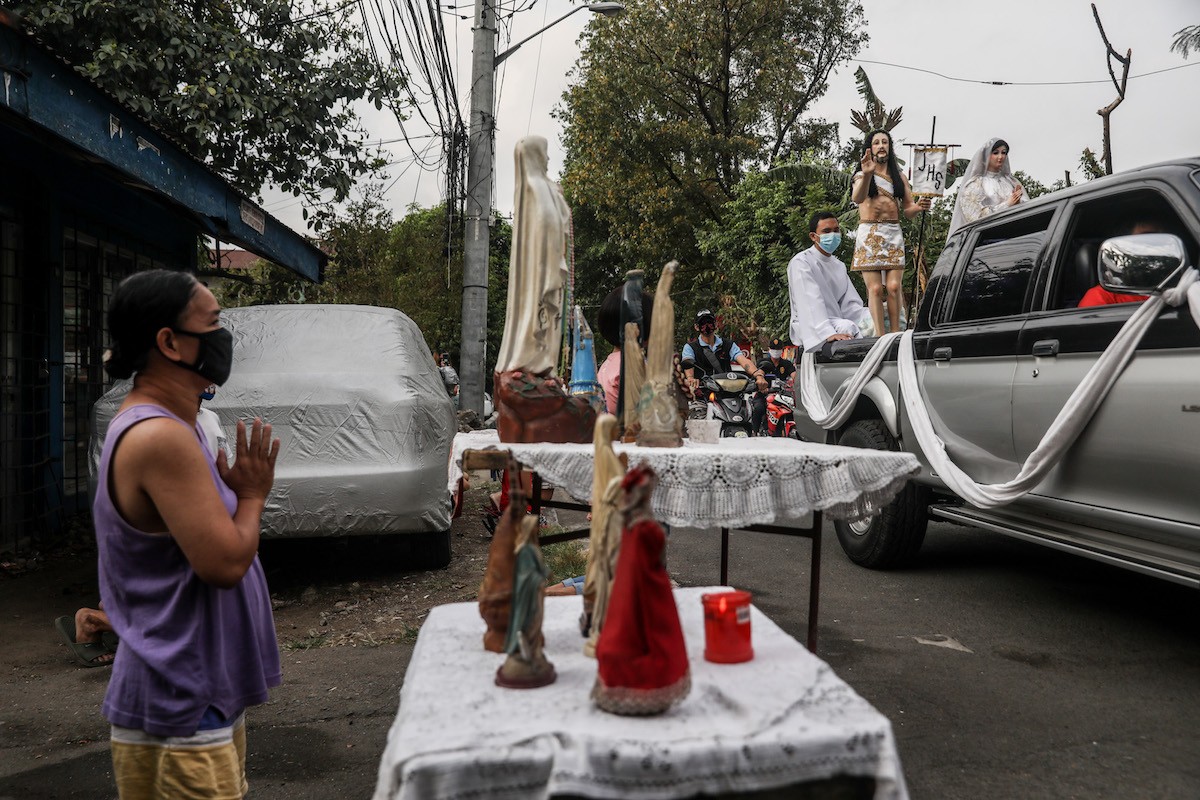Religion is considered “very important” for Filipinos even without the threat of the new coronavirus.
A survey done by pollster Social Weather Stations (SWS) during the last quarter of 2019 showed that 83 percent of respondents, or eight in ten Filipinos, said faith plays a very important role in their lives.
The result of the survey was released on April 12, Easter Sunday, a month after authorities imposed a lockdown in most of the country in an attempt to arrest the spread of the new coronavirus.
The opinion that religion is very important has been dominant in all SWS surveys since December 2015.
The latest figure of 83 percent, however, is a new record-high that surpassed the previous record of 82 percent in December 2016.
The survey also found that 45 percent attend religious services weekly, 32 percent monthly, and 22 percent occasionally.
The remaining 0.7 percent said they never attend religious services.
This brings the 2019 average attendance at religious services to 44 percent weekly, 34 percent monthly, 21 percent occasionally, and one percent never.
Catholic church leaders said they expect the number of people who consider religion as very important in their lives will continue to rise because of the pandemic.
“With the plague inflicted on us, I surmise that this percentage will up higher,” said Bishop Arturo Bastes, retired prelate of Sorsogon.
“Not only Filipinos but the majority of human beings will realize that religion is important when disaster strikes,” he said.
Bishop Bastes said that with or without the pandemic Filipinos are deeply religious because “we have been endowed with the Christian faith for 500 years.”

Archbishop Martin Jumoad of Ozamiz said the survey results revealed how important faith is to Filipinos.
“Our faith is really part of our being,” he said. “Man is grounded on the other. Man is not complete when he cannot express his religious convictions publicly,” said Archbishop Jumoad.
“It is as if something is lacking,” he added. “That is why because of this COVID-19, when we are told to stay at home, this creates a nostalgia, a longing to go to church and pray together,” he said.
Bishop Broderick Pabillo, apostolic administrator of Manila, said faith and religiosity are deeply embedded in the lives of Filipinos.
“Filipinos are very religious,” he said. “God and our relationship with him are very important to us,” added the prelate.
Bishop Ruperto Santos of Balanga said “only God matters especially this time of crisis where at the end of the day, money, power, and popularity are all useless.”
“What we have and have in our hands are all fleeting,” he said. “So, religion is very important. To have God in our life, to turn and trust Him is very essential and very much needed,” he added.
Bishop Valentine Dimoc of Bontoc-Lagawe said those who consider religion as very important should “teach and show what religion really means” to the other 17 percent.
The proportion of those who consider religion as very important rose among Catholics, up from 68 percent in June 2019 to 78 percent in September 2019, and 84 percent in December 2019.
It also rose among other Christians, up from 68 percent in June 2019 to 78 percent in September and December 2019. SWS defines other Christians as Christians other than Catholics and members of the Iglesia ni Cristo.
It remained highest among Muslims, hardly moving from 93 percent in June 2019 to 94 percent in September and December 2019.

The survey, however, noted that since 2013, only minorities of adult Filipinos attend religious services weekly, ranging from 43 percent to 47 percent in annual averages.
The annual average weekly attendance at religious services used to be a majority 66 percent when SWS first surveyed it in 1991.
It fell to 58 percent in 1994 and mostly stayed above 50 percent until 2012, except in 2008 when it fell to a minority 47 percent.
It fell to an average 46 percent in 2013, and has since then stayed at minority levels.
The 43 percent annual average weekly attendance at religious services in 2019 is the lowest since the 46 percent annual average in 2013, 2014, 2015, and 2017.
On the other hand, the annual average proportion of those who attend religious services monthly has been steady from 2010 to 2019, ranging from 33 percent to 35 percent.
The proportion of those who attend religious services weekly was highest among Muslims at 97 percent, followed by Iglesia ni Cristo at 78 percent, other Christians at 62 percent, and Catholics at 39 percent.
In the 80 SWS Surveys on attendance at religious services from 1991 to 2019, weekly attendance at religious services has always been slightly lower among Catholics than adult Filipinos in general.







